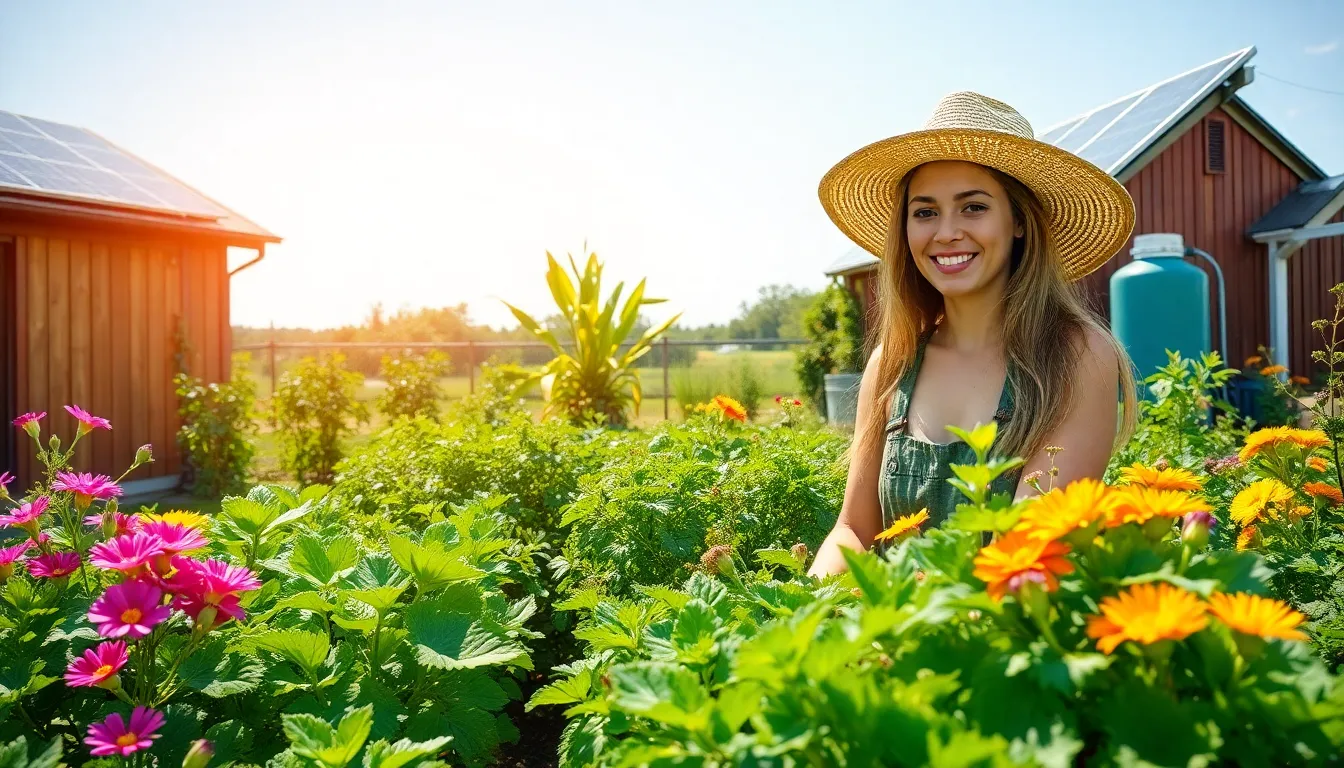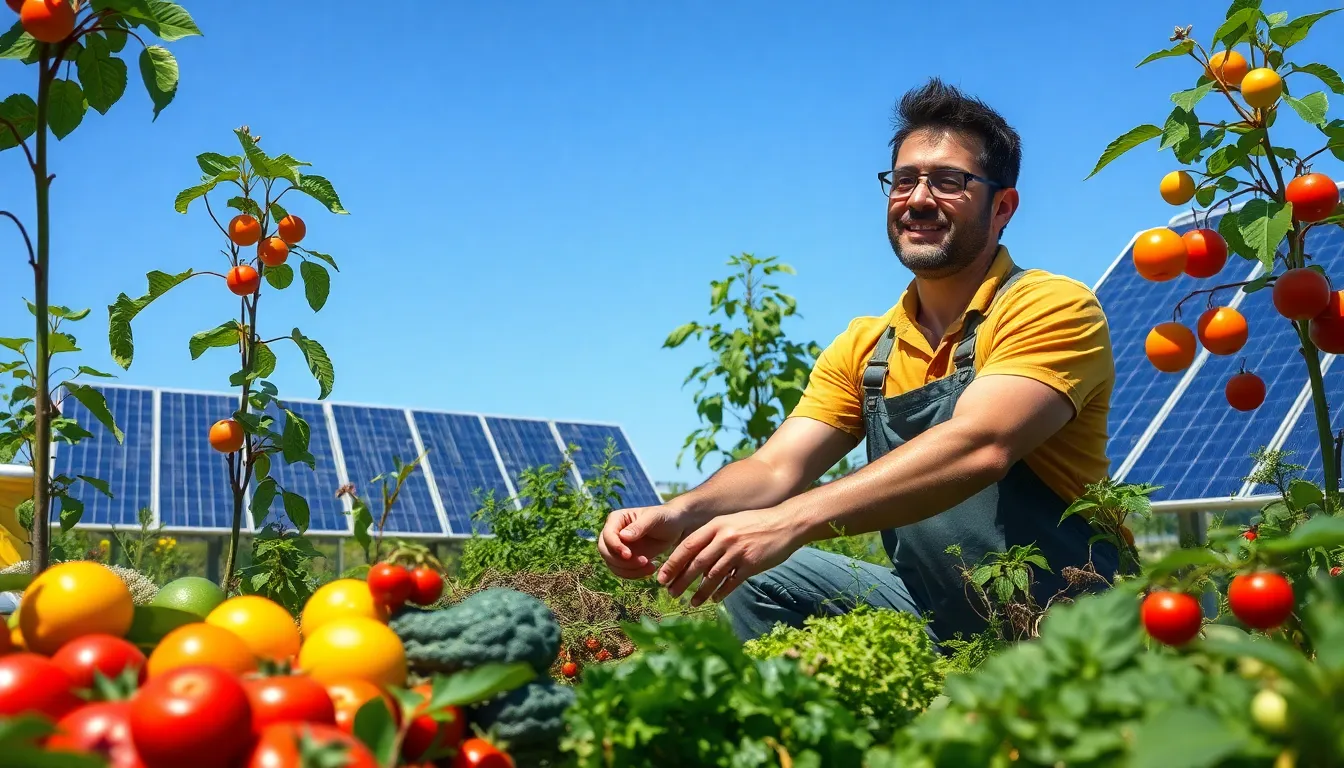Physical Address
304 North Cardinal St.
Dorchester Center, MA 02124
Physical Address
304 North Cardinal St.
Dorchester Center, MA 02124

Imagine waking up to the sound of chirping birds instead of blaring alarms. Picture yourself sipping coffee brewed from rainwater while surrounded by nature’s beauty. Living off the grid isn’t just a trend; it’s a lifestyle choice that offers freedom from the daily grind and a chance to reconnect with what truly matters.
But what does it really mean to live off the grid? It’s not just about ditching your Wi-Fi and saying goodbye to your favorite Netflix binge. It’s about embracing self-sufficiency, sustainability, and a bit of adventure. Whether it’s harnessing solar power or growing your own veggies, living off the grid can be a rewarding experience that challenges the status quo. So grab your gardening gloves and let’s dive into what it means to unplug and thrive in a world that’s often too connected.
Living off the grid refers to a lifestyle characterized by independence from public utilities. This way of life emphasizes self-sufficiency, where individuals often generate their own electricity, collect water, and grow food. Many who choose this path aim to reduce their environmental impact and foster a more sustainable existence.
Sustainability plays a crucial role in this lifestyle. Using renewable energy sources, like solar panels and wind turbines, enables off-grid dwellers to minimize reliance on fossil fuels. They often employ rainwater harvesting systems or drill wells to secure clean water supplies.
Growing food on-site supports both health and independence. Many individuals maintain vegetable gardens, fruit orchards, or raise livestock, ensuring access to fresh produce. This self-sufficient approach not only promotes a healthier diet but also reduces carbon footprints associated with transportation.
Community is a significant aspect of off-grid living. Many enthusiasts share resources, skills, and knowledge to enhance their journey toward sustainability. Local networks frequently form, fostering connections that support each other’s endeavors.
Living off the grid often involves embracing simplicity and intentionality. This lifestyle invites participants to focus on essential aspects of life, prioritizing personal values over consumerism. Engaging with nature and understanding local ecosystems enriches the experience beyond mere survival.
As a choice, this way of life attracts a diverse group of people, from environmental activists to those seeking a quieter existence. Each individual’s goal varies, yet the underlying principle of self-reliance unites them.

Off-grid living revolves around independence and responsible resource management. Central to this lifestyle are two key principles: self-sufficiency and sustainability.
Self-sufficiency defines off-grid living, emphasizing autonomy in everyday life. Generating electricity through solar panels or wind turbines allows individuals to control their energy sources. Collecting rainwater and purifying it for drinking fosters independence from municipal water systems. Many enthusiasts cultivate their own gardens, growing fruits and vegetables year-round. Skills such as canning and food preservation enhance food security while reducing reliance on grocery stores. Overall, self-sufficiency encourages a hands-on approach to life, empowering individuals to meet their own needs.
Sustainability plays a vital role in off-grid living, focusing on the long-term health of the planet. Utilizing renewable energy sources like solar, wind, and hydropower minimizes environmental impact. Common practices include composting organic waste to enrich soil, thereby promoting healthy gardening. Incorporating energy-efficient appliances further reduces consumption and waste. Off-grid communities often prioritize eco-friendly building materials, creating living spaces that harmonize with the environment. Committing to sustainable practices contributes to preserving natural resources for future generations.
Living off the grid offers numerous advantages that enhance both individual well-being and environmental health. This lifestyle fosters a unique relationship with the planet, encouraging sustainable practices.
Off-grid living significantly lowers a person’s carbon footprint. By relying on renewable energy sources like solar and wind, individuals generate clean energy. In addition, using natural methods for water collection and purification minimizes dependence on municipal systems. Gardening promotes biodiversity while reducing transportation emissions associated with store-bought food. Composting and recycling practices support soil health and waste reduction. These methods create a sustainable circle, enhancing the local ecosystem’s resilience.
Autonomy is a hallmark of off-grid lifestyles. Individuals cultivate their food to ensure they meet nutritional needs without relying on grocery stores. Energy production through solar panels or wind turbines grants freedom from utility companies. Rainwater harvesting provides a personal water source regardless of municipal supply. Developing essential skills such as canning, gardening, and building fosters self-reliance. This shift reduces vulnerability to price fluctuations in energy and food, creating a sense of security in daily life and future preparedness.
Living off the grid presents several challenges that require careful consideration and planning. Exploring these challenges reveals important factors for individuals contemplating this lifestyle.
Accessing resources remains a primary challenge for off-grid living. Without dependence on public utilities, individuals must identify reliable alternatives. Water collection methods such as rainwater harvesting or well installation arise as critical tasks. Food production through gardening necessitates knowledge and skills in sustainable practices, affecting crop yields. Additionally, energy sources like solar panels or wind turbines require financial investment and maintenance. Managing these resources effectively ensures a sustainable and functional lifestyle.
Navigating legal considerations poses another challenge for off-grid dwellers. Zoning laws and regulations vary significantly by location, impacting the feasibility of off-grid setups. Many areas impose restrictions on building codes, waste disposal, or property use, which can complicate the establishment of an off-grid home. Permitting processes for alternative energy systems can also take time and effort. Understanding local regulations becomes essential to avoid potential fines or legal issues. Engaging with local authorities or researching zoning laws helps ensure compliance with regulations, contributing to a successful off-grid experience.
Living off the grid offers a unique opportunity for individuals to embrace a lifestyle rooted in self-sufficiency and sustainability. By generating their own energy and growing their own food, they cultivate a deeper connection with nature while reducing their environmental impact. This way of life fosters independence and encourages a simpler existence focused on essential values.
However, it also presents challenges that require careful planning and resourcefulness. Understanding local regulations and finding reliable alternatives to public utilities are crucial for a successful off-grid experience. For those willing to navigate these hurdles, the rewards of living off the grid can be profound, leading to a more intentional and fulfilling way of life.